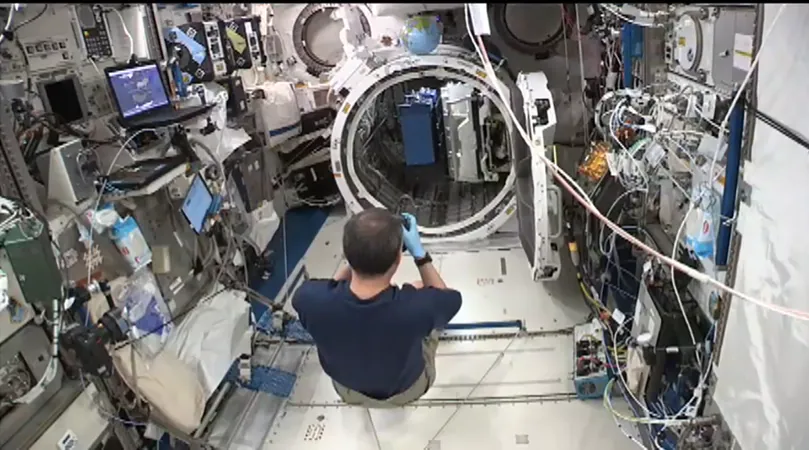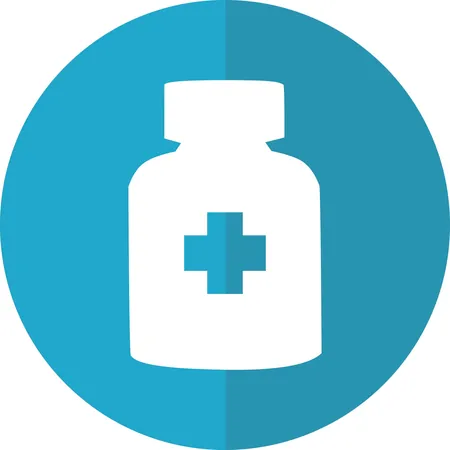
Cosmic Radiation Poses a Hidden Threat to Medications Aboard the ISS – What This Means for Future Space Missions
2024-11-08
Author: Yu
Groundbreaking research has unveiled a shocking truth: cosmic radiation can dramatically degrade medications onboard the International Space Station (ISS). This revelation, reported in the prestigious journal *Advanced Healthcare Materials*, highlights significant implications for astronauts on future deep-space missions, such as trips to Mars and beyond, where they would face prolonged exposure to high levels of cosmic radiation.
The study was a collaborative effort between researchers at the University of Adelaide in Australia and astronauts aboard the ISS. It took a close look at how ibuprofen tablets, stored in aluminum blister packs, were affected when housed in two different locations over a nine-month period: the controlled environment inside the station and the more exposed outer platform known as the Multipurpose International Space Station Experiment.
While the ibuprofen tablets inside the station displayed a concerning but manageable level of degradation—aligning with Earth-based tests that simulated cosmic radiation—those on the ISS’s external platform faced a staggering degradation rate of over 50%. This alarming finding raises serious concerns for long-duration missions to the Moon, Mars, and beyond, where astronauts’ health could be at risk due to ineffective medications.
Notably, medications like ibuprofen aren’t just losing potency in space; they are breaking down into harmful and toxic byproducts. Volker Hessel, a co-author of the study, noted that in addition to the diminished effectiveness of these drugs, new compounds produced could pose health risks, such as skin and respiratory irritations due to substances like 2-propionic acid and neurotoxicity from 4′-isobutyl-acetophenone.
However, it’s not all doom and gloom. The researchers are exploring innovative solutions, such as coating ibuprofen tablets with iron oxide to absorb some cosmic rays and potentially lessen degradation. The early results of this strategy are promising, leading to significantly lower degradation rates. Furthermore, adding specific flavorings to the tablets may neutralize harmful degradation products.
As NASA eye ambitious missions that could take astronauts to Mars for up to three years, understanding how to preserve medication during these extended journeys is crucial. Experts like Jacob Raber emphasize the importance of evaluating whether medications with modified formulations maintain their safety and effectiveness through various challenging conditions encountered in space.
What's next for this critical area of research? Investigations into the stability of liquid medications are on the horizon, as approximately half of the medications used by astronauts involve autoinjection—necessitating liquid forms. Given that liquid medications are inherently less stable and subject to more significant effects from microgravity and cosmic radiation, developing tailored solutions is essential.
In a future where astronauts might not only need to take ibuprofen but also other vital medications for their health, researchers hint that entirely new "space medicines" could be in our future. These would be purpose-built alternatives that could withstand cosmic radiation and meet the unique medical needs of those venturing into deep space.
As the quest to explore the universe continues, the safety and efficacy of medications remain paramount, reminding us that even the smallest details can have a monumental impact on human health beyond our planet. Stay tuned for the next stages of this important research, which could shape the future of space exploration!



 Brasil (PT)
Brasil (PT)
 Canada (EN)
Canada (EN)
 Chile (ES)
Chile (ES)
 España (ES)
España (ES)
 France (FR)
France (FR)
 Hong Kong (EN)
Hong Kong (EN)
 Italia (IT)
Italia (IT)
 日本 (JA)
日本 (JA)
 Magyarország (HU)
Magyarország (HU)
 Norge (NO)
Norge (NO)
 Polska (PL)
Polska (PL)
 Schweiz (DE)
Schweiz (DE)
 Singapore (EN)
Singapore (EN)
 Sverige (SV)
Sverige (SV)
 Suomi (FI)
Suomi (FI)
 Türkiye (TR)
Türkiye (TR)